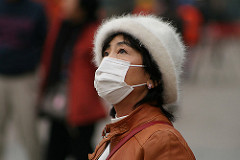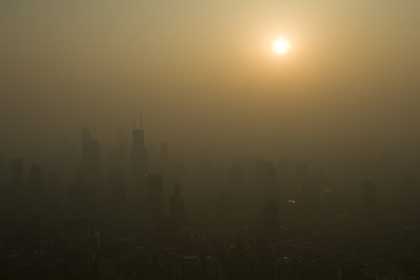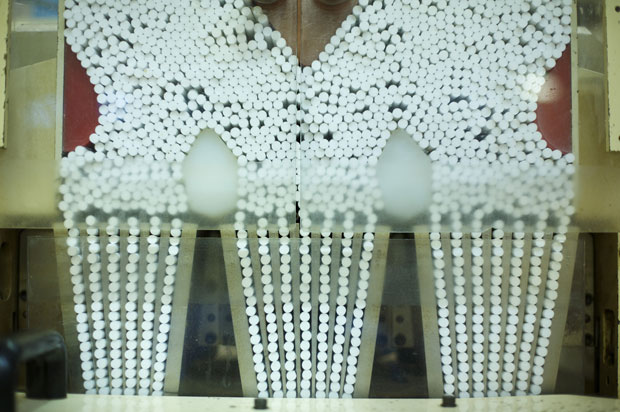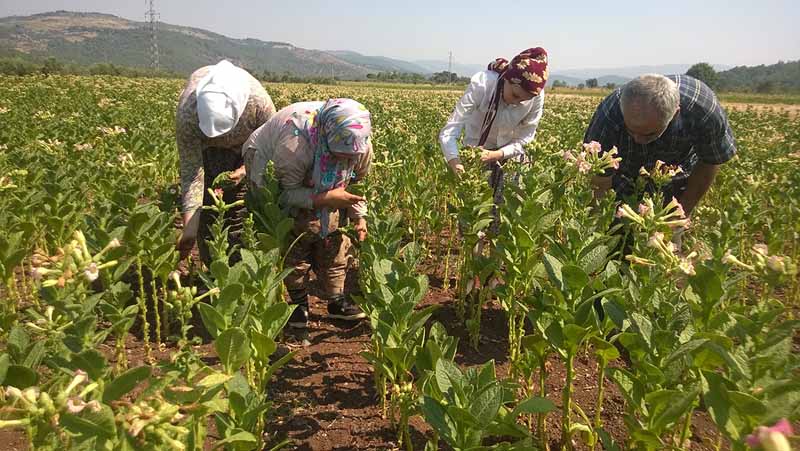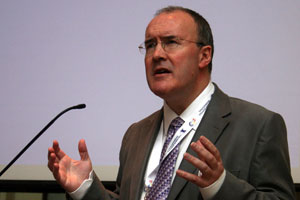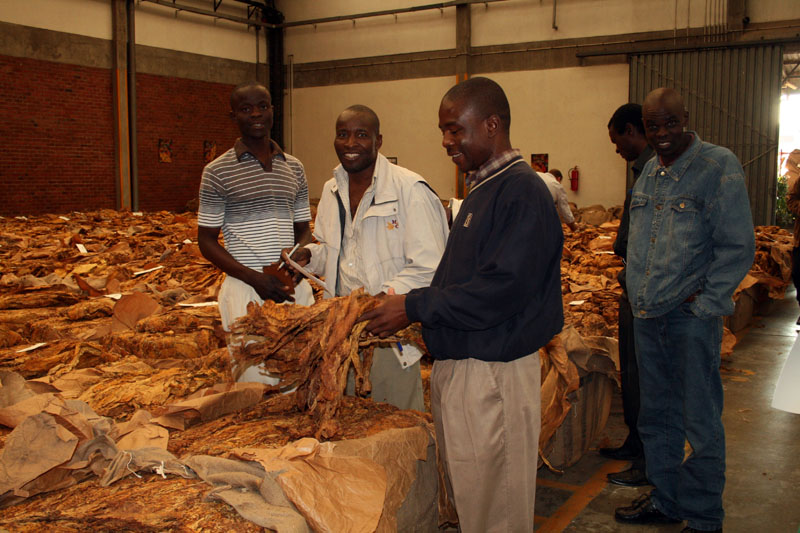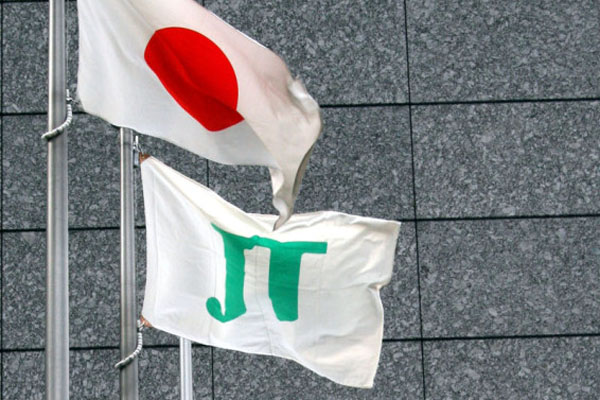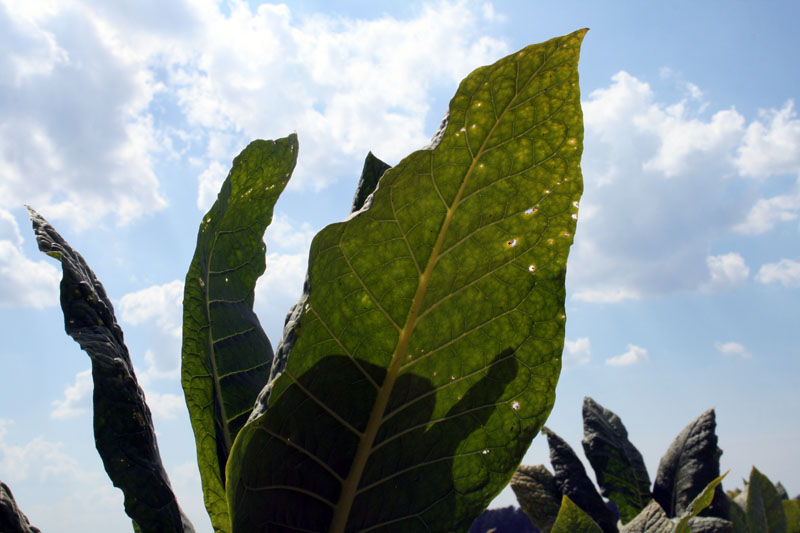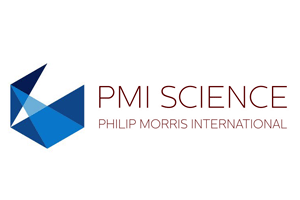Xian has become the latest city in China to ban tobacco smoking in public places, according to a story in The South China Morning Post.
This latest ban follows those introduced in Beijing in 2015 and in Shanghai and Shenzhen in 2017.
The Chinese government outlawed smoking in enclosed public places nationwide in 2011, but the ban, which was not backed by penalties, was barely implemented at local level and, when it was, it was poorly enforced.
The authorities in Xian announced that, effective from November 1, smoking in enclosed public places would be prohibited, including on public transport.
Smoking is due to be banned, too, in some outdoor public places such as sports stadiums, children’s parks and school playgrounds.
The laws were published in full on the website Xian News on Saturday.
Meanwhile, the eastern city of Hangzhou amended a proposed ban on indoor smoking earlier this year after lobbying from China Tobacco, the state tobacco manufacturer, according to a Reuters report. Now, the city must provide designated indoor smoking areas.
Xian’s new legislation has been welcomed by public health experts at the World Health Organization.
“This 100 percent smoke-free regulation is a wonderful gift for the people and visitors of Xian,” said Dr. Shin Young-soo, the WHO’s regional director. “It is the gift of health and air free from harmful second-hand smoke.
However, as was reported here yesterday, there is no escape. The WHO says that toxic air that billions of people breath every day is the ‘new tobacco’.
Dr. Tedros Adhanom Ghebreyesus, the director general of the WHO has declared that air pollution is a public health emergency that is killing seven million people every year and seriously damaging the health of many more.
‘Despite this epidemic of needless, preventable deaths and disability, a smog of complacency pervades the planet,’ Tedros said. ‘This is a defining moment and we must scale up action to urgently respond to this challenge.’
Category: Sustainability

Fiddling as the air kills

Mutual assured destruction
Air pollution is a public health emergency that is killing seven million people every year and seriously damaging the health of many more, according to Dr. Tedros Adhanom Ghebreyesus, the director general of the World Health Organization writing in The Guardian on Saturday.
Tedros ended his piece by saying that the world had turned the corner on tobacco. Now it had to do the same for the ‘new tobacco’: the toxic air that billions breathed every day.
‘Despite this epidemic of needless, preventable deaths and disability, a smog of complacency pervades the planet,’ Tedros said. ‘This is a defining moment and we must scale up action to urgently respond to this challenge.
‘The bald truth is that bad air quality puts the health of billions at risk from the simple act of breathing. The World Health Organization estimates nine in 10 people globally breathe polluted, toxic air.
‘Filthy air is a health risk at every stage of life. Exposure to air pollution during pregnancy can damage a developing baby’s vital organs including the brain, heart and lungs and lead to a range of conditions including asthma, heart disease and cancers.
‘Air pollution also negatively affects brain development during childhood, lowering children’s chances of success in school and employment possibilities later in life.’
Tedros said that the WHO was due shortly [October 30-November 1] to host in Geneva, Switzerland, the first global conference on air pollution and health, where leaders would chart next steps for future action to cut air pollution in their countries.
It's the smoker's burden
India’s Group of Ministers within the Goods and Services Tax (GST) Council are being urged to increase the tax on tobacco products to help shore up the country’s disasters-remediation revenue, according to a story in the latest issue of the BBM Bommidala Group newsletter.
Public health groups, doctors and economists are said to be calling for the imposition of the additional tax on all tobacco products, including bidis, to address ‘the crisis and generate funds for the rehabilitation of the people of Kerala affected by recent floods’.
Currently, the tax on bidis is said to amount to 22 percent, while that on cigarettes is 53 percent and that on smokeless tobacco is 60 percent.
The World Health Organization recommends that tobacco-product excise taxes should be at least 75 percent.
Meanwhile, a panel of state finance ministers set up to consider a disaster tax within the GST to help states hit by natural calamities has decided to seek the response of all states on the matter.
It is probably as well that India is looking into raising funds for mitigating the effects of disasters natural or otherwise. The World Health Organization says that the country has nine of the world’s 10 most-polluted cities, as calculated on PM2.5 (fine particulate matter) levels in the air.
Little profit in growing
Zimbabwe is forfeiting at least US$27 on every kg of unmanufactured tobacco that it exports, according to a story in The New Zimbabwe quoting the Finance Minister Mthuli Ncube.
Speaking at an investment conference in Switzerland last week, Ncube said that Zimbabwe was one of the biggest producers of leaf tobacco and that the bulk of what it produced was exported in unmanufactured form.
Zimbabwe’s more-than 100,000 growers had produced a record flue-cured crop this year of 252.5 million kg.
But the average price had gone down.
And the average price of about US$3 per kg for unprocessed grower tobacco and US$6 per kg for processed tobacco, compared with between US$30 and US$60 for tobacco cigarettes, Ncube said.
Therefore, by exporting unprocessed tobacco Zimbabwe was forfeiting at least US$27 per kg that could be accruing to the country.
The story said that Zimbabwe was looking for foreign direct investment to boost its economy so that it could become a middle-income country by 2030.
Jordan has growing ideas
Jordan is considering lifting its ban on the commercial cultivation of tobacco, according to a Roya News story citing an Al Ghad report and relayed by the TMA.
Tobacco cultivation has been banned in Jordan for the past 10 years, except in the case of small quantities for personal use.
Quoting an unnamed source at the Ministry of Health, Al Ghad, reported that the Government was considering allowing leaf cultivation for commercial purposes.
The Government had formed a committee, comprising representatives of the ministries of health, agriculture and trade-and-industry, and other organizations, to study the feasibility of such a move.
Call for duty freeze
Campaigners have urged the UK Chancellor Philip Hammond to freeze tobacco duty when he delivers his autumn budget statement on October 29.
Simon Clark, director of the smokers’ group Forest said today that tobacco duty had been rising for years because of the so-called tobacco tax escalator.
Today, more than 80 percent of the retail price of cigarettes and rolling tobacco went to the government.
And a further increase in tobacco duty would once again hit those who could least afford it, including the elderly and the low paid.
“As well as forcing some people further into poverty, it will inevitably encourage others to buy their tobacco abroad or on the black market at home,” Clark said.
“This will hit legitimate retailers and the government will lose revenue; so no-one wins apart from criminal gangs and illicit traders.”
Calling for a freeze on tobacco duty, Clark said that while smoking might not be a healthy lifestyle choice, tobacco was a legal product and targeting smokers with punitive taxation was unfair on consumers and retailers.
“Fair’s fair,” he said. “A freeze on tobacco duty is long overdue and would be welcomed by millions of smokers who are tired of being singled out by successive governments.”
Growers told to diversify
Zimbabwe’s flue-cured tobacco growers are being encouraged to diversify into other high value export crops such as chia, oil seed and cigar tobaccos, according to a story in The Chronicle.
Although flue-cured tobacco is one of Zimbabwe’s major foreign currency earners, cigarette-tobacco consumption is seen as being under threat in some countries from products such as electronic cigarettes.
The Tobacco Industry and Marketing Board (TIMB) corporate communications manager, Isheunesu Moyo, said yesterday the promotion of chia production among tobacco farmers was meant to ensure growers had an all-year-round source of income.
Moyo said that farmers were being trained to grow chia and to engage in horticultural.
Chia, he added, was an ideal crop for diversification since its seeds were in demand abroad and it therefore had good potential as a foreign currency earner.
TIMB has had all its field and technical officers trained in chia production so that they can impart the necessary skills and knowledge to tobacco farmers.
JT receives PRIDE award
Japan Tobacco Inc. has received the highest-ranked Gold award from the voluntary organization work with Pride (wwP) as part of Japan’s PRIDE Index 2018, according to a note posted on JT’s website. At the same time, the company has been recognized for its Best Practice by the wwP PRIDE Indicator Steering committee, which has a role in evaluating when the efforts put in by companies and organizations are particularly good.
This year marked the third consecutive year in which JT had been awarded Gold status, and the second consecutive year in which it was recognized for its Best Practice.
The PRIDE index rates the efforts of companies and organizations in five categories based on criteria established by wwP.
Awards are given based on the company’s efforts in the light of each category to create a pleasant workplace for LGBT people across Japan.- Policy (Action Declaration).
- Representation (LGBTA network).
- Inspiration (Raising Awareness).
- Development (Human Resources Management Policy and Programs).
- Engagement/Empowerment (Social Responsibility and External Activities).
JT said in its note that it believed in respecting diversity not only in terms of people’s gender, gender identity, sexual orientation, age, and nationality, but also in respect of their backgrounds and values, including their experiences and expertise.
It said that finding value in differences would lead to sustainable growth for the company. ‘Promoting diversity and inclusion is one of the issues in our management plan,’ it said.
‘JT continues to actively promote diversity in order to achieve sustainable growth through the participation of diverse human resources.’
No tobacco contamination
Japanese Burley has been given the all-clear.
Japan Tobacco Inc. has been conducting pre-purchase tests for radioactive materials in Japanese domestic leaf tobacco since the accident at the TEPCO Fukushima Daiichi nuclear plant in 2011.
Other tests have been carried out at each stage of its production process.
‘Prior to this year’s Japanese domestic tobacco harvest, the company has again been conducting radioactive material testing on leaf tobacco before purchase, with the support of tobacco growers,’ JT said in a note posted on its website.
‘Testing of this year’s Burley have now been completed, showing none of the leaf tobacco tested exceeded the JT standard value (Radioactive cesium: 100 Bq/kg).
‘Furthermore, JT will continue with its scheme of testing domestic leaf tobacco after purchase, and testing and monitoring a number of times at each stage of the production process.
The pre-purchase tests were carried out on 24 samples from the Tochigi, Fukushima, and Miyagi prefectures by the company’s research centre using ORTEC germanium semi-conductor detectors.
Innovation the key
Philip Morris International has said that, given the right conditions, it could stop selling combustible cigarettes in less than a century.
PMI yesterday published a position paper giving its views on the eighth session of the Conference of Parties (COP8) to the World Health Organization Framework Convention of Tobacco Control (FCTC).
‘With more than one billion people expected to be smoking in 2025, PMI is urging the WHO, the hundreds of delegates convening in Geneva this week, and the wider public health community to embrace the potential of innovative alternatives to cigarettes in order to achieve the UN’s sustainable development goals for non-communicable diseases as quickly as possible,’ PMI said.
PMI acknowledged that smoking prevalence was in decline but argued that the pace of that decline could be much faster.
‘The landscape of tobacco and nicotine products has evolved significantly over recent years,’ the company said. ‘Not all tobacco products are the same with respect to their health risks. Moreover, rapid innovation offers opportunities to accelerate the downward trajectory of smoking prevalence.’
PMI said that, ultimately, it aimed to stop selling cigarettes entirely and was confident that this could happen in less than a century if smokers who would otherwise continue to smoke were proactively encouraged to switch to less harmful alternatives, which already exist but were either not well known or in some cases restricted.
‘Where these products have been adopted, for instance, in countries such as Japan and the UK, there have been unprecedented declines in cigarette sales,’ PMI said. Progress in these countries signals the potential for great change across the globe and is the core reason why PMI has publicly committed its future to being smoke-free, and continues to develop new science-based technologies and innovations that offer better alternatives to men and women who would otherwise continue to smoke.’
PMI’s policy-making recommendations published yesterday include:- Policies must continue to dissuade minors, ex-smokers, and non-smokers from using tobacco- and nicotine-containing products, while making better alternatives to cigarettes available to adults who smoke.
- Tobacco control policies should encompass tobacco-harm reduction strategies as well as supply and demand measures that encourage smokers who would otherwise continue to smoke to switch to better alternatives.
- There should be thorough, independent verification of manufacturers’ products and science to assess how ENDS [electronic nicotine delivery systems] and novel and emerging tobacco and nicotine products can support policies to reduce smoking prevalence.
- There should be national and global surveillance systems to study market trends. This surveillance should include data on product usage, including switching rates associated with different tobacco and nicotine products, to enable accurate reporting of smoking prevalence and the use of ENDS and novel and emerging tobacco products.
- Incentives should encourage investment and continuous research and development of less harmful alternatives, including the establishment of quality and performance standards for smoke-free products.
- Mechanisms should be established to enable transparent interaction and consultation between governments and producers of emerging tobacco and nicotine products.
The policy paper is at: https://www.pmi.com/resources/docs/default-source/newsroom/pmi-cop-position-statement.pdf?sfvrsn=41ff9cb5_10.

